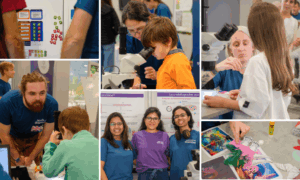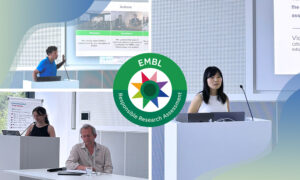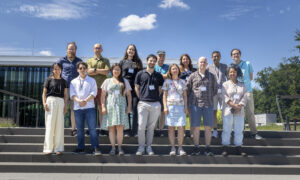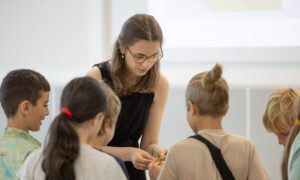
Allyship and support: an interview with Janet Thornton
Professor Dame Janet Thornton discusses work–life balance, the support she has received during her career, and how organisations can help staff during the COVID-19 pandemic.
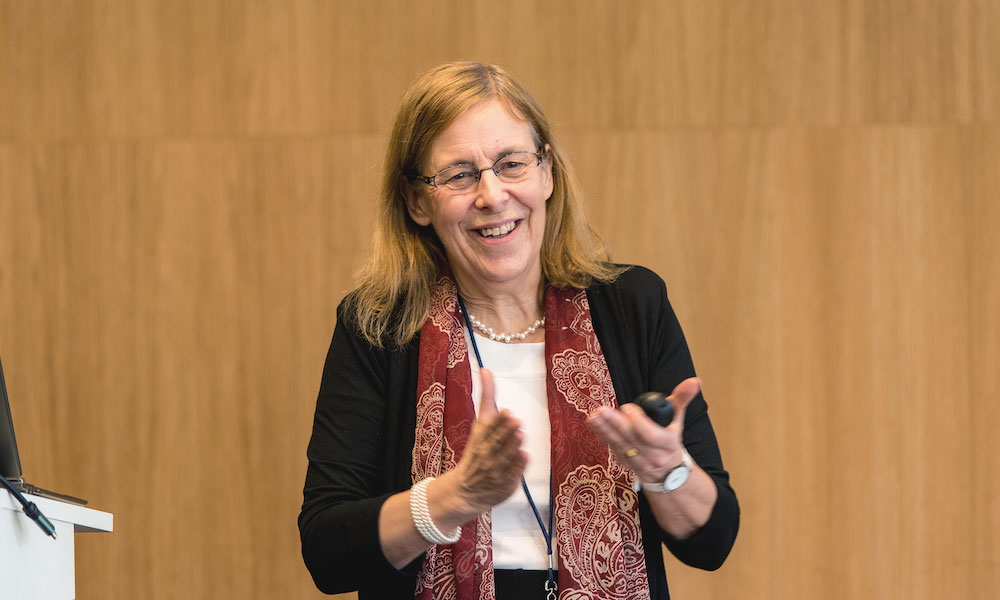
Life as a scientist can be tough. Long working hours, papers being rejected, and things not going as planned. Scientists can certainly benefit from the help and support of others; not only colleagues but also family and friends.
Being happy in your scientific career may rely on striking the right work–life balance, and this is something Professor Dame Janet Thornton, Senior Scientist and Emeritus Director at EMBL’s European Bioinformatics Institute (EMBL-EBI), has had plenty of experience with.
Janet has had an incredible career in computational biology and is world renowned for her research in unravelling protein structure and function. In her early career she worked part time to raise her two children – something she never saw as a barrier to her career, but another step in managing her complex but enjoyable life. In this interview, Janet shares her insights into taking a break from research, her experience of allyship throughout her career, and what organisations can do to support their staff during the COVID-19 pandemic.
You’ve had an incredible career in science. When did you know you wanted to be a scientist and was your career path planned out in any way?
I wasn’t sure I wanted to be a research scientist until almost the end of my PhD. I hadn’t planned any of this – I thought I would be a teacher! After my PhD I took a postdoc position, but I still hadn’t planned much for the future at all. Following on from my postdoc I received a fellowship that enabled me to work part time whilst I had young children. After this I was delighted to be offered a part time lectureship. I worked part time for almost 12 years in total. So, as with most people, my career choices were determined by what I wanted to do, but also by my personal circumstances.
Who has helped and supported you in your career?
I’ve received a lot of support and allyship from many different mentors over my career. Firstly my PhD supervisor, Peter Bayley, supported me through the occasional wobbles when I wasn’t sure whether I wanted to continue. Secondly Professor Sir David Phillips, a pioneer in protein crystallography; when I was working in Oxford as a postdoc, David allowed me to explore the things I was interested in, beginning my lifelong love of protein structure.
As a postdoc I worked at Birkbeck College (now Birkbeck, University of London) in a very active and fun department led by Tom Blundell. He was very supportive of me working part time. During my more recent years working at EMBL, Iain Mattaj was a constant support as I became Director of EMBL-EBI and established ELIXIR. He was a tough taskmaster, but straightforward and very easy to work with.
For me, the most important mentors have been my friends and colleagues – seeing how they coped with work, research, success and failure. I would also say that my family have mostly been very tolerant of my commitment to work, managing well in my absence. My parents always encouraged me without any pressure and my progress was a constant surprise and delight to them.
You’ve done some fantastic work to support women in science, including the development of the Janet Thornton Fellowship, which funds scientists who have taken a break from research. Why is supporting scientists in this way important to you?
I think every scientist, but perhaps especially women, need to decide how they will deal with their work–life balance. There is no “right” way to do this – different solutions suit different people. I wanted to be at home when my children were still at their junior schools. I enjoyed the local life and spending time as part of that community. I feel that this option, which turned out to be quite unusual among my colleagues, is completely feasible in research. A scientist has about 50 years to do their research; taking a short time out of that lifespan to be at home for whatever reason should certainly be possible.
Living and working during the COVID-19 pandemic has been very difficult for everyone. How do you think the pandemic and lockdown experience will change the working lives of scientists in future?
I suspect that we will travel much less. It would still be good to attend conferences to exchange ideas with colleagues, but hopefully other travel could be replaced by video calls. I also think we will work from home more, spending our time shared between home and the office. One thing I think we’ve all learned from this experience is that, if necessary, most things can be done by video call.
The COVID-19 threat is global, so closer cooperation between countries will benefit science and help us develop our methods of working together. At EMBL, for example, we’re developing closer links between our sites to enable even better science.
What do you think organisations can do to help their employees while working from home during lockdown?
Care, care, care.
This goes for everyone within an organisation; supervisors care for their group members and group members look after each other. Organisations need to provide the technical support to enable efficient and safe working from home. It’s also very difficult for those coming to the end of a PhD, postdoc, or staff contract. These employees should receive extensions to help them through this difficult time.
I think EMBL has done very well in this regard. I congratulate the EMBL Directors and those in HR, Administration, and Finance for all the support they’ve given to staff to help them work safely and happily from home.
